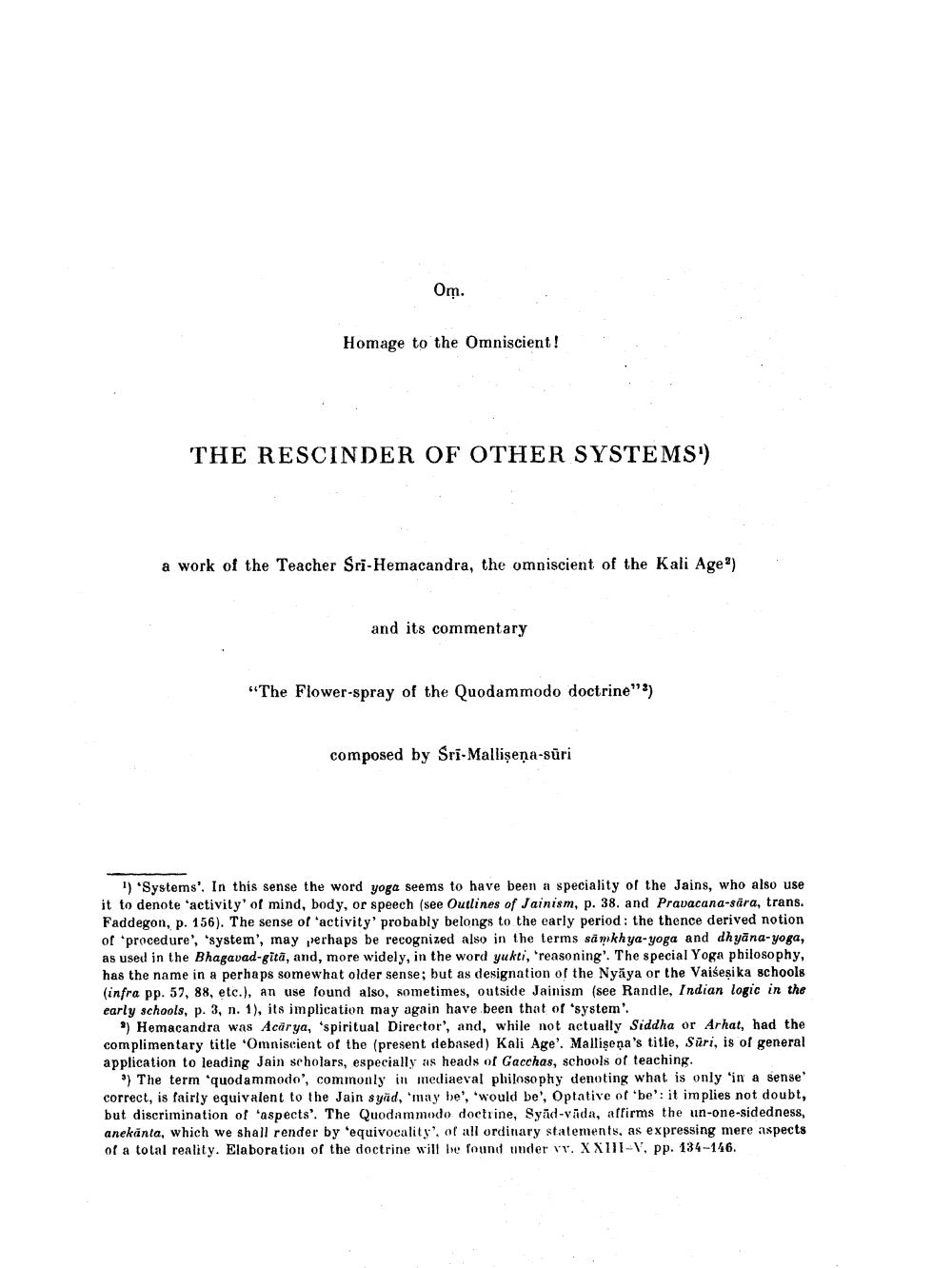________________
Om.
Homage to the Omniscient!
THE RESCINDER OF OTHER SYSTEMS')
a work of the Teacher Sri-Hemacandra, the omniscient of the Kali Age2)
and its commentary
"The Flower-spray of the Quodammodo doctrine")
composed by Sri-Mallişena-sūri
1) Systems'. In this sense the word yoga seems to have been a speciality of the Jains, who also use it to denote 'activity' of mind, body, or speech (see Outlines of Jainism, p. 38. and Pravacana-sära, trans. Faddegon, p. 156). The sense of 'activity' probably belongs to the early period: the thence derived notion of procedure', 'system', may perhaps be recognized also in the terms sänkhya-yoga and dhyana-yoga, as used in the Bhagavad-gita, and, more widely, in the word yukti, 'reasoning'. The special Yoga philosophy, has the name in a perhaps somewhat older sense; but as designation of the Nyaya or the Vaiseṣika schools (infra pp. 57, 88, etc.), an use found also, sometimes, outside Jainism (see Randle, Indian logic in the early schools, p. 3, n. 1), its implication may again have been that of 'system'.
9) Hemacandra was Acarya, 'spiritual Director', and, while not actually Siddha or Arhat, had the complimentary title 'Omniscient of the (present debased) Kali Age'. Mallisena's title, Suri, is of general application to leading Jain scholars, especially as heads of Gacchas, schools of teaching.
3) The term 'quodammodo', commonly in mediaeval philosophy denoting what is only 'in a sense' correct, is fairly equivalent to the Jain synd, 'may be', 'would be', Optative of 'be': it implies not doubt, but discrimination of 'aspects'. The Quodammodo doctrine, Syad-vada, affirms the un-one-sidedness, anekanta, which we shall render by 'equivocality', of all ordinary statements, as expressing mere aspects of a total reality. Elaboration of the doctrine will be found under vv. XXIII-V, pp. 134-146.




